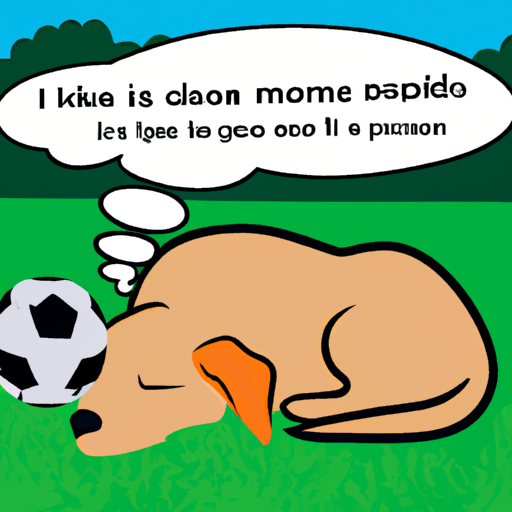As a caregiver, you’ve probably noticed your furry friend twitching in their sleep and wondered what’s happening. Is it just a dream, or should you be concerned? Let’s delve into this intriguing phenomenon to understand better.
Understanding Your Dog’s Sleep Cycle
Before we can delve into the reasons behind your dog’s twitching, it’s important to understand their sleep cycle. Similar to humans, dogs go through various stages of sleep:
- Light sleep
- Deep sleep
- Rapid Eye Movement (REM) sleep
The twitching you observe typically happens during the REM stage, where most dreaming occurs.
The Role of Dreams
Have you ever observed your dog and thought they’re dreaming?
- Whining
- Growling
- Moving legs as if running
These are all signs your dog might be in a dream state. It’s believed that dogs, like humans, dream about their daily activities. So, your pup might be reliving their afternoon walk or chasing a squirrel in their dreams.
Exploring the Science Behind Twitching
The science behind twitching lies in the brain. During the REM stage of sleep, the pons, a part of the brain stem, sends signals to immobilize the large muscles, preventing dogs from acting out their dreams.
However, these signals don’t reach smaller muscles, leading to twitches. Here’s a simplified view of this process:
| Brain Part | Function During Sleep | Result |
|---|---|---|
| Pons | Sends signals to immobilize muscles | Prevents acting out dreams |
| Smaller muscles | Unaffected by signals | Twitches |
When Should You Be Concerned?
While twitching is mostly normal, there are times when it can be a cause for concern:
- Seizures: If the twitching is intense and lasts more than a few minutes.
- Other symptoms: If twitching is accompanied by other symptoms like loss of appetite, lethargy, or behavioral changes.
In such cases, it’s best to seek immediate veterinary care.
How to Help Your Twitching Dog
If your dog’s twitching is normal, there’s no need for intervention. But if it appears to be intense, gently wake them up. Don’t shake them abruptly; a gentle pat or soothing voice should suffice.
FAQs
Q: Do all dogs twitch in their sleep?
A: Not all dogs twitch, but it’s a common occurrence, especially during the REM stage of sleep.
Q: Can I prevent my dog from twitching in their sleep?
A: Typically, there’s no need to prevent normal twitching. However, if it’s intense or accompanied by other symptoms, consult a vet.
Q: Should I wake my dog up if they’re twitching?
A: If the twitching is mild, it’s best to let them sleep. If it’s intense or appears distressing, gently wake them.
As a caregiver, your concern for your dog’s well-being is commendable. Understanding their sleep patterns and behaviors can help ensure they’re healthy and happy. So, next time you see your dog twitching in their sleep, remember, they’re probably just chasing squirrels in their dreams!



